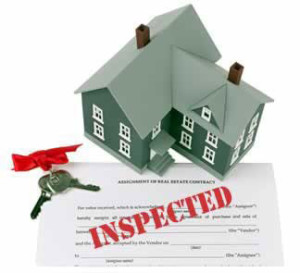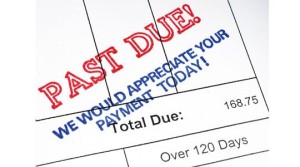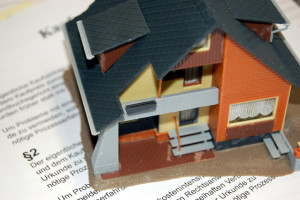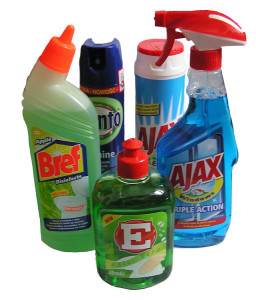What You Need to Know About Home Inspections

Whether you’re buying your next home or another investment property, the inspection process is the single most important stage between an accepted offer and the closing. However, it’s not always straightforward. Depending on the home and how comfortable you feel, you may choose to have certain elements professionally inspected while analyzing others on your own.
The Dangers of Ignoring Home Inspections
While buying a home may be exciting, it’s also a very serious process. Even for professional landlords with handfuls of properties, a mistake with one house can completely damage an entire portfolio. That’s why it’s so important to get home inspections.
According to professional home inspectors, some defects are more common than others. Dave Swartz claims faulty wiring is the number one defect, with roof problems, HVAC issues, plumbing problems, and poor insulation in the attic following closely behind. Rick Yerger and Austin Chase, also reputable home inspectors, both claim they encounter foundational moisture, drainage, and water damage more than anything else.
However, the list doesn’t stop there. There are plenty of other common defects (especially in older homes), including window and door leaks, minor structural damage, termite damage, wood rot, stucco issues, undesirable grading slopes, and presence of unwanted chemicals or dangerous substances.
Important Home Inspections
The undetected presence of even one of these issues can be costly. That’s why it’s so critical to have the following home inspections done prior to closing:
• General home inspection. The first thing to get done is the general home inspection. This will be your most expensive (somewhere between $300 and $500) and comprehensive inspection. This inspector will look at things like electrical wiring, roofing, plumbing, insulation, structural integrity, and more. He or she will produce a written report that discusses any issues and necessary repairs.
• Termite inspection. If the previous owner already has a termite bond in place, you may simply be able to transfer it to your name. However, if there is no existing termite bond (or if the home inspector finds any evidence of termite damage), you should invest in a new inspection. Termite inspectors will search for signs of structural damage and identify any possible issues. A good termite inspection usually costs around $100.
• Water inspection. For homes that are supplied by a well system, a water inspection is critical. This report will tell you about the makeup of the drinking water and identify metals like cadmium, lead, and arsenic. Furthermore, homes with septic tanks need testing.
• Radon inspection. The EPA recommends every home be tested for radon prior to purchase. This dangerous chemical is directly linked to cancer and causes thousands of deaths per year. Testing is the only way to detect the presence of radon and it should only cost between $75 and $200. That’s a low price for peace of mind and health.
• HVAC. Many people overlook an HVAC inspection (assuming the general home inspector can identify all issues), but this can be a costly error. While a general home inspector will briefly examine HVAC units, it’s not always as thorough as you may like. A good HVAC professional will look at the furnace and heat exchanger, identify pre-existing conditions, ensure all systems are working, verify thermostat settings, and more.
While these are five of the most important inspections, there are others you may want to invest in depending on the age, location, price point, or findings in the general home inspection report. It may be wise to have older chimneys inspected, square footage verified, soil tested, large trees examined, and more. However, do note that you can spend thousands of dollars on inspections. In most cases, the five inspections above should be adequate – but do follow the direction of your general inspector if he or she sees any red flags.
Common Home Inspection Mistakes
As you can see, the home inspection process isn’t something to be taken lightly. Missing something here can be extremely costly (or even damaging to your health and safety). Be aware of these two common home inspection mistakes so you don’t fall victim to the same errors:
• Selecting based on price. You should never choose a home inspector based on the company that offers the cheapest price. To some extent, the price will be correlated with thoroughness and quality. Your home inspection is something worth paying for, so don’t give it to the person with the least experience or lowest qualifications. Your real estate agent or attorney should be able to give you multiple referrals and you can then interview each for information regarding licensing, insurance, and affiliations.
• Not being present. It’s certainly not mandatory, but it is ideal to be present for the actual inspection. This gives context to the report and allows you to really understand where the problem areas are, how serious they are, and what you should do about them. Without being there, you’re likely to over or underemphasize issues. “I did one inspection where the buyer didn’t come along, and he ended up getting worked up about first-floor plugs that weren’t grounded and completely ignored that the water tank was drafting carbon monoxide,” says Aaron Flook, owner of a Pittsburgh-based inspection company.
Quick DIY Checklist
Before placing an offer or calling a home inspector, you can always perform a firsthand inspection to identify any obvious issues. Here’s a simple checklist of tasks you can perform yourself (so that you can ask the inspector about them):
• Run multiple faucets at the same time and check to make sure water drains properly.
• While running the kitchen faucet, go ahead and taste the water to see if the pipes give it any extra, unwanted flavor.
• Open the electrical panel and make sure everything is clearly labeled (and that there aren’t any signs of damage).
• Pull the carpet back at the corners to see if there’s any presence of mildew, mold, or moisture.
• Open the windows to make sure they aren’t stuck or cracked.
• Light the fireplace to make sure it’s in working condition (and that the chimney is clear).
Contact Your Dream Real Estate Today
At Your Dream Real Estate, we understand how big of an investment a home is. Whether it’s for your own personal enjoyment or intended to be an income-producing property, you want to make sure everything checks out. For additional information on anything related to real estate – and specifically property management – please contact us today!

 We use the best property management software available, which provides a number of online features for our tenants and owners. Tenants can pay rent online and submit maintenance requests. Owners can review statements and see what’s happening at the property no matter where in the world you’re located.
We use the best property management software available, which provides a number of online features for our tenants and owners. Tenants can pay rent online and submit maintenance requests. Owners can review statements and see what’s happening at the property no matter where in the world you’re located.








